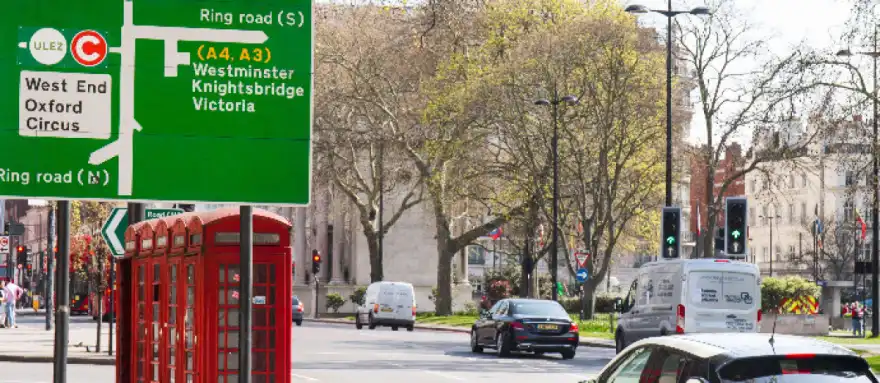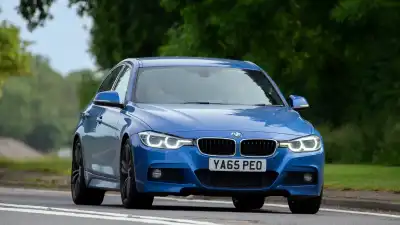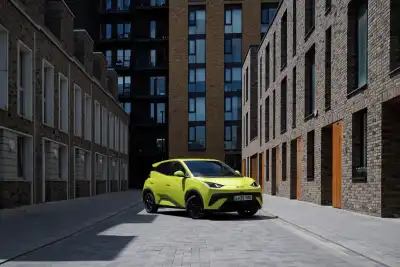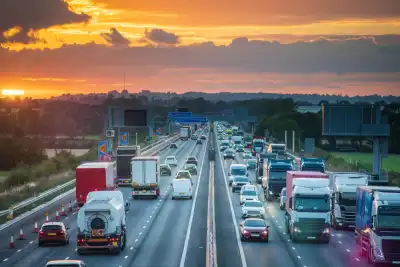
Air pollution is a major problem, not just in the UK but around the world.
One way that lawmakers are aiming to tackle it is through the implementation of ultra-low emissions zones (ULEZ), also known as clean air zones (CAZ). These aim to completely ban or charge more polluting vehicles from entering specific areas, often city centres.
While London’s ULEZ is the most well-documented, similar schemes are already in operation in other cities across the UK. You can check if your car is compliant by entering your vehicle’s registration in our free ULEZ checker. Over the coming years, there are going to be lots more of these schemes being implemented too.
Let’s take a look at what low-emission zones are already in the UK, what they mean and where the next similar zones will be introduced.
What different types of clean air zones are there?
Clean air zones are split into four categories. This is important because only one applies to privately-owned cars.
Class A – Buses, coaches, taxis, private hire vehicles
Class B - Buses, coaches, taxis, private hire vehicles and HGVs
Class C – Buses, coaches, taxis, private hire vehicles, HGVs, vans and minibuses
Class D – Buses, coaches, taxis, private hire vehicles, HGVs, vans and cars. Motorcycles can be included too.
Here, we’re going to focus specifically on the Class D clean air zones that apply only to privately owned cars that have to meet the following criteria to be able to enter:
- Euro 6 for diesel vehicles. This became mandatory in September 2015.
- Euro 4 for petrol vehicles. This became mandatory in 2005.
Which cities already have low-emission zones or clean-air zones for private cars?
London
London’s Ultra Low Emission Zone (ULEZ) is one of the most well-known of its type. First introduced in April 2019, it was expanded in 2021 to include all areas within the North Circular Road (A406) and South Circular Road (A205). It is expanding on August 29, 2023, though to include all London boroughs, covering a high presentation of areas within the M25.
To drive in the ULEZ in a non-compliant car, you need to pay a £12.50 daily charge (not applicable if the vehicle is parked). Fines of £180, reduced to £90 if paid within 14 days, will be issued if not. London also has the Congestion Charge, which applies to all vehicles that aren’t electric, as well as the separate Low Emission Zone that only applies to heavier diesel vehicles, such as coaches and HGVs.
Bristol
Bristol introduced its Clean Air Zone in November 2022, and it applies to all cars. Working in a similar way to London’s ULEZ scheme, it operates in the centre of the city, including areas such as Canon’s Marsh and Queen Square.
If you drive a none compliant car, you’ll pay a daily charge of £9 to drive in the Clean Air Zone. Fines of £120 will be given if you don’t pay, reduced to £60 if paid within the first 14 days.
Birmingham
Birmingham’s Clean Air Zone is one of the largest in the UK and covers all roads within the Middleway and Ring Road. It applies to cars too, and like in London if your vehicle isn’t Euro 4 compliant for a petrol, or Euro 6 for a diesel, you’ll have to pay to use it.
It’s been in operation since June 2021, with a daily charge of £8 needed if your vehicle doesn’t meet the requirements. The fine for not paying is £120, reduced to £60 if paid within 14 days.
Glasgow
Glasgow was the first city in Scotland to introduce a Clean Air Zone, and it expanded its reach in June 2023 to apply to private cars as well.
You’ll have to drive a Euro 4 petrol or Euro 6 diesel to be able to enter the zone, as unlike other schemes you can’t pay a daily charge. Rather, you’ll be fined £60 if you cross the boundary.
Oxford
Oxford’s scheme, called the Zero Emissions Zone, works slightly differently from others here. Rather than a zone, there are specific streets within the city centre where it applies. It’s a very small area and only covers nine streets, and some only partly.
It applies to all vehicles, and charges vary depending on the type of vehicle, costing up to £10. Fully-electric vehicles are exempt.
Where are the next clean air zones set to be introduced?
Aberdeen
The green light was given for Aberdeen to introduce a new low-emission zone in 2022. Though it’s technically been in use since then, it won’t start to be enforced until 1 June 2024, which is when non-compliant vehicles will need to start paying. Like in Glasgow, only compliant vehicles can enter without being fined.
Dundee
Dundee follows Glasgow’s lead, and though the clean air zone scheme was officially launched in 2022, it won’t be enforced until 30 May 2024, which is when drivers in non-compliant vehicles will begin getting fines for not entering.
Edinburgh
You might have noticed that Scotland is taking the lead when it comes to the implementation of low-emission zones, and that continues with the implementation of a scheme in the country’s capital Edinburgh. Though already in operation, enforcement isn’t due to start until 1 June 2024.
Greater Manchester
Manchester is one of the largest UK cities that is yet to introduce a clean air zone. There has been a lot of opposition to the implementation of such a scheme, even ones that don’t apply to private vehicles. Due to the city’s size and high pollution, however, it’s likely a scheme will be launched in the coming years.




